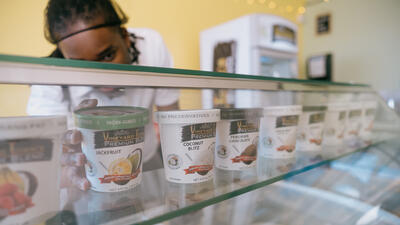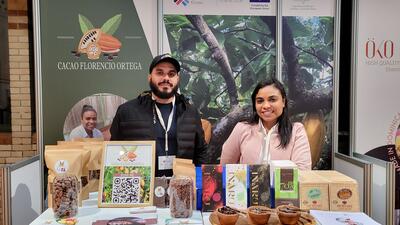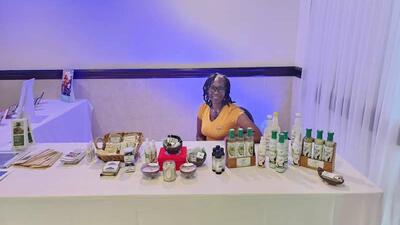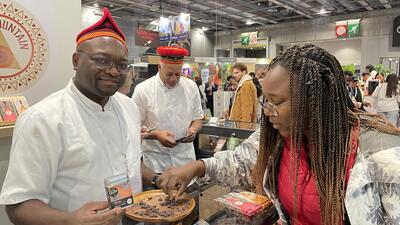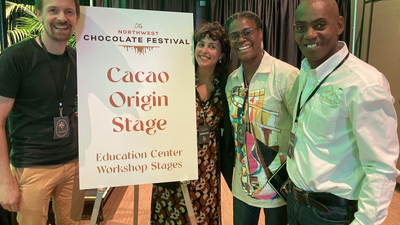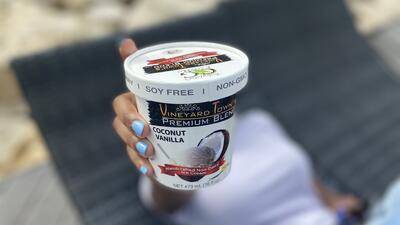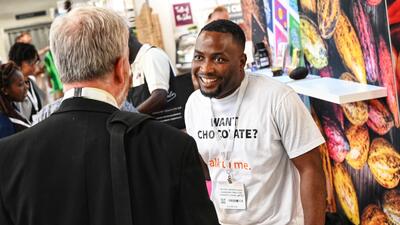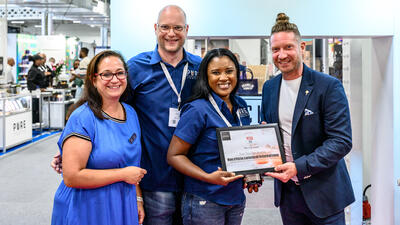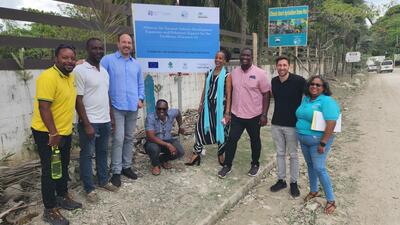
Bridging the blue-green divide through partnerships
How can you transform food systems sustainably and protect marine life at the same time?
The Alligator Head Foundation knows how. The Jamaican not for profit, non-governmental organization focuses on ecological restoration through marine conservation. By engaging communities dependent on marine resources for their livelihoods, it seeks to protect fish stocks, restore habitats, and regenerate local economies.
It does so with a ‘Ridge to Reef’ strategy of environmental conservation and sustainable community development combined with the International Trade Centre’s Alliances for Action approach.
It helps bridge the gap between land and sea and offers coastal fishing and farmer communities an understanding of how interlinked the two spaces are for a sustainable future for the island.
Trade Forum talked with Nickie Myers, the Foundation’s General Manager, to find out how their work transforms food systems in Jamaica sustainably, and what winning the 2023 UN SIDS Partnerships Award has meant for the Foundation.
Watch our video or read the interview below which has been edited and condensed for clarity.
Video
We work for fish filled seas, abundant reefs and thriving communities. We do ecological restoration through marine conservation – but our work is not limited to what is done in the water.
We look at the circularity of conservation which is both in marine and terrestrial spaces, or what we call the blue and the green economy. We see ourselves as facilitators, advocates, and agitators in ensuring that we are the best custodians and stewards of the space that we’re occupying. That is what comes through in our community-driven model that is the Foundation.

We keep it very real. We first start with contact, reaching out to our communities. Then we move into communication, and the ultimate goal is meaningful connection. It is essential for us to communicate the challenges to stakeholders, but also how we are going to implement solutions together. That means talking about climate-smart agriculture with coastal communities, and why it makes a difference in a marine space.
It is first through connection that we are able to achieve transformation.
With the International Trade Centre and the Coconut Industry Board, through the Alliances for Action, we have reimagined what agriculture is, not in isolation, but in the context of how it impacts the marine space.
We are committed to the capacity development of farmer and coastal communities. In practice, that means we provide boats so fisher folk can go outside the protected area to fish. We facilitate planting coconut trees and intercropping crops, like pineapples, plus mangroves for climate-smart barriers. We offer sustainable agribusiness training for farmers looking at diversifying their income and markets. These are our building blocks for transformation.

It has been an incredible reminder that collaboration and partnerships work! We are a collective. Not just our Foundation, but humankind at large. It is important to remember that challenges are always going to find best solutions in collaborative efforts.
In that sense, our collaboration with ITC and the Coconut Industry Board has been incredible. While our individual goals may be different, there is synergy in our overall vision and what we want to achieve together. Thanks to this award, people across different global sectors are now aware of the work that we do. It has helped understand that we deal with so much more than just the marine space, and that the combination of the blue and the green (economy) is essential to moving forward with conservation and development.

Under the programme Alliances for Coconut Industry Development for the Caribbean, funded by the European Union (EU) and supported by the CARIFORUM Secretariat, Nickie is working with ITC’s sustainable agribusiness Alliances for Action programme.
The International Trade Centre’s Alliances for Action, the Caribbean Agricultural Research and Development Institute (CARDI) and important regional and national partners, such as Jamaica’s Coconut Industry Board, have been working since 2015 to facilitate alliances among actors at every step of the Caribbean coconut value chain through this programme.
Sustainable agriculture and processing practices, value addition and commercial alliances are some of the key elements leveraged. The goal of the project is to increase food availability and incomes of small-scale farmers and small businesses through improved competitiveness in the coconut sector.








